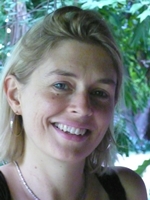Goodbye the opening protocols and, no, we won’t miss you
Human beings are odd creatures, often rather slow to learn – none more so, perhaps, than those of us who, year in and year out, spend an unnatural amount of time at philanthropy conferences. How many times have we sat through long, four-presenter panels and when we weren’t dozing off, been very clear in our minds that long speeches followed by apologetic excuses that “unfortunately we have no time for audience participation”, do not make for an interesting experience. And then how many times have we found ourselves as speakers, moderators or audiences in exactly the same kinds of sessions?
So yesterday’s opening plenary at the EFC’s annual conference, “Rethinking Europe: Solidarity, Civil Society and Political Governance” held in a rather rainy Sarajevo, came as a refreshing change. There were no long prepared speeches by passing dignitaries or bureaucrats. Jacki Davis, who will be moderating all the conference plenaries, who is clearly something of an authority on the intricacies and complexities of the European debate, set a relaxed and curious tone for a lively conversation with her four panellists, Avila Kilmurray from the Community Foundation for Northern Ireland, Mirsad Purivatra, from the Sarajevo Film Festival, Vesna Terselic from Documenta – Center for Dealing with the Past and Janusz Reiter, Director for the Center for International Relations (who is a front-runner for the prize for time spent travelling to vs. time spent attending the conference).
The open discussion format certainly made for a more accessible experience for conference participants. It also highlighted some of the deep disconnects and tensions – both intellectual and emotional – that are inspired by the European debate.
The rise of populism and xenophobia, the deep scepticism of publics towards European institutions that are perceived as lacking in transparency and highly technocratic, and the complacency and passivity of a generation of younger voters in many countries who are fortunate never to have experienced war were all mentioned by panellists as factors that are shaping the current narrative in many European member states.
But the conversation also turned to the larger, more inspirational vision of Europe as a construct which embraces certain key values and principles around diversity and inclusion, all of which have a particular importance and urgency in young, fragile democracies. Unsurprisingly, the current crisis in Ukraine came up as well as did the question of EU expansion, particularly in the context of countries such as Bosnia which are emerging from conflict. And Avila Kilmurray lamented the loss of the EU’s “subtlety” as narrative had gradually changed from emphasizing a culture of peace to one around defence and security. In Northern Ireland, she observed, the EU had played an important role in supporting the Northern Ireland peace process by providing a platform in which Great Britain and Ireland were treated as equals.
Jenny Hodgson, Global Fund for Community Foundations.







Comments (0)